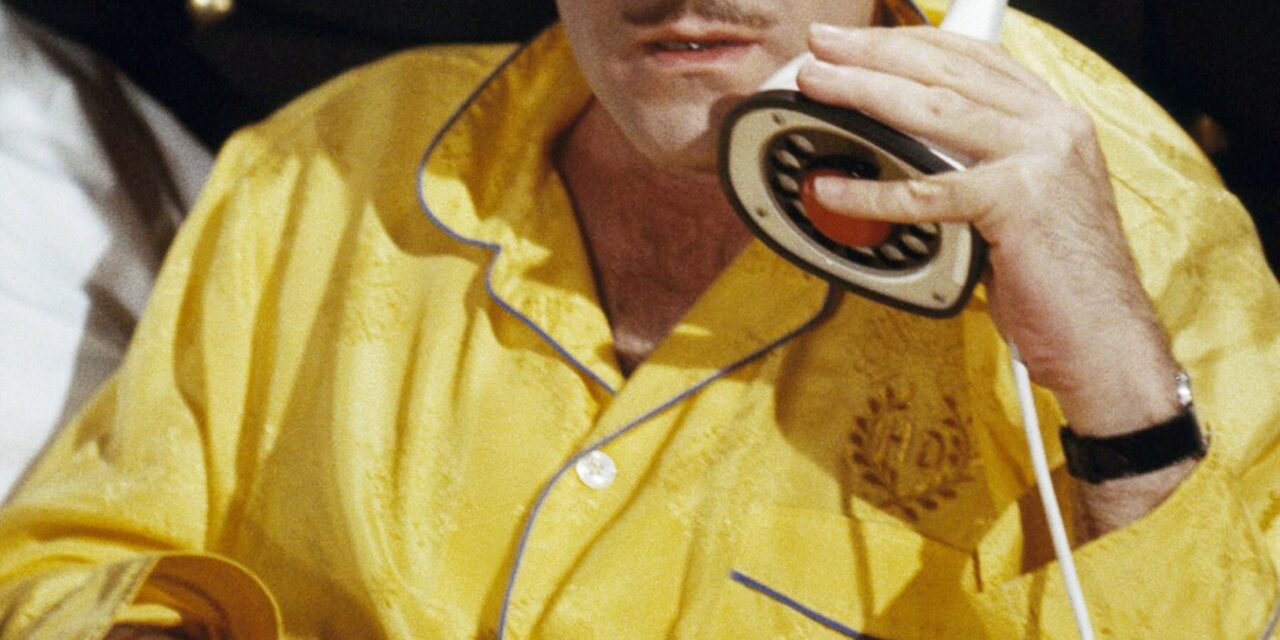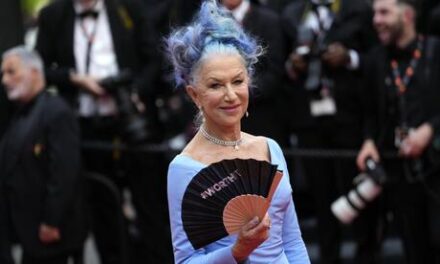Inside the studio of the costume master who helped give the world “Klute,” “The English Patient,” “Midnight Cowboy,” “Working Girl,” “Mamma Mia!” “Ma Rainey’s Black Bottom” — and more.
Ann Roth began with a few instructions: “Do NOT call me amazing. Do NOT call me a 91-year-old legend. Do NOT call me the oldest person in the ‘Barbie’ movie.”
I had driven four hours through a biblical downpour to interview the revered costume designer. After a hike down a dark path through the woods to an 18th-century house, I felt as though I were opening the Narnia wardrobe and entering a whimsical fantasy world. Owls perched on rafters. Angels from Naples, Italy, dangled from the bedroom ceiling and chandeliers. A stone mantel was lined with miniature farm animals amid Oscars, Tonys and BAFTAs.
The enchanted cottage is a portal to one of the most imaginative minds in American culture, who has conjured memorable theater and film characters for more than half a century, from “The World of Henry Orient” to “The World According to Garp,” from “Midnight Cowboy” to “The Morning After.”
Ms. Roth was dressed in a crisp blue Orvis shirt, flowered shorts, rubber sandals (with aquamarine toenails peeking out) and an anklet that reads “East Coast” in an Old English typeface, a present from her grandchildren. She sports rings for earrings, including her grandmother’s engagement diamond.
Ms. Roth has a pivotal scene with Margot Robbie in the “Barbie” movie, directed by her friend Greta Gerwig (Ms. Roth calls her “Gret”). When it was floated that Ms. Gerwig cut the scene, she refused, she said, because without it, “I don’t know what this movie is about.”
When the forever-young Barbie ventures out from Barbieland and encounters Ms. Roth, who plays a woman sitting at a bus stop in Los Angeles reading a paper, the doll suddenly realizes that being human and growing old could be cool.
“You’re so beautiful,” Barbie tells the woman, sounding amazed.
“I know it,” Ms. Roth, in character, replies blithely.
Asked about the blizzard of pink that has enveloped the nation, Ms. Roth replied: “I live in Pennsylvania. I haven’t seen pink in a long time.” She is not going to a fancy “Barbie” premiere. She’s going to see the movie this weekend at a theater on Route 248 in eastern Pennsylvania.
The designer has been the trusted collaborator of — and provocateur for — a pantheon of top directors, including Mike Nichols, Nora Ephron, Steven Spielberg, Anthony Minghella, John Schlesinger, Brian De Palma, George Roy Hill, Hal Ashby, Joe Mantello, Jack O’Brien, M. Night Shyamalan, Stephen Daldry, James Brooks and, early in her career, Dino De Laurentiis.
“She rides shotgun with you,” said Mr. O’Brien, the Broadway director.
Ms. Roth points out a bedroom where her close friend Meryl Streep stays when she visits. She has conjured Ms. Streep’s look in 13 movies, including “Silkwood,” “Heartburn,” “Postcards From the Edge,” “Doubt,” “Julie & Julia,” “The Post” and “Mamma Mia!” as well as the mini-series “Angels in America.” She calls her “Melstrip,” echoing the way she heard the name pronounced in Italy.
She is planning a road trip in Italy with Melstrip if she can find the right shoes to ease her knee pain.
Jesus Christ by Way of Cheryl Tiegs
Ms. Roth is of Quaker stock. She grew up in Pennsylvania Dutch country, where she wore a long strand of pearls to her job as a teenager at the five-and-ten. After graduating in the class of ’53 at Carnegie Mellon, she apprenticed with the celebrated costume designer Irene Sharaff, working on “Brigadoon” (dyeing the men’s tartans), Judy Garland’s “A Star Is Born,” and “The King and I.”
Ms. Sharaff warned her protégée not to pursue her dream of becoming a production designer, saying, according to Ms. Roth, “it’s not the place for women.”
Mr. O’Brien said he knew that Ms. Roth was a force to be reckoned with back in 1970, when they worked on a production of “The Importance of Being Earnest” and she suggested adorning Miss Prism, Oscar Wilde’s strict spinster governess, with little scissors around her waist. “So she can go snip, snip, snip, at people’s balls,” Mr. O’Brien said with a laugh.
Ms. Roth was doing Off Broadway shows, stealing costumes from garbage cans, when she got her Hollywood break. Zooming around Los Angeles in her white 1946 MG convertible, she started with a splash, creating the fantastic look for the 1964 Peter Sellers comedy “The World of Henry Orient.” In it, an affluent Manhattan teenager named Valerie Boyd telegraphs her loneliness by draping her neglectful mother’s long mink coat over her plaid school uniform; Mr. Sellers’s Casanova concert pianist is bedecked in monogrammed handmade yellow silk pajamas. “Do you think I’d make polyester for anyone?” Ms. Roth said with a laugh.
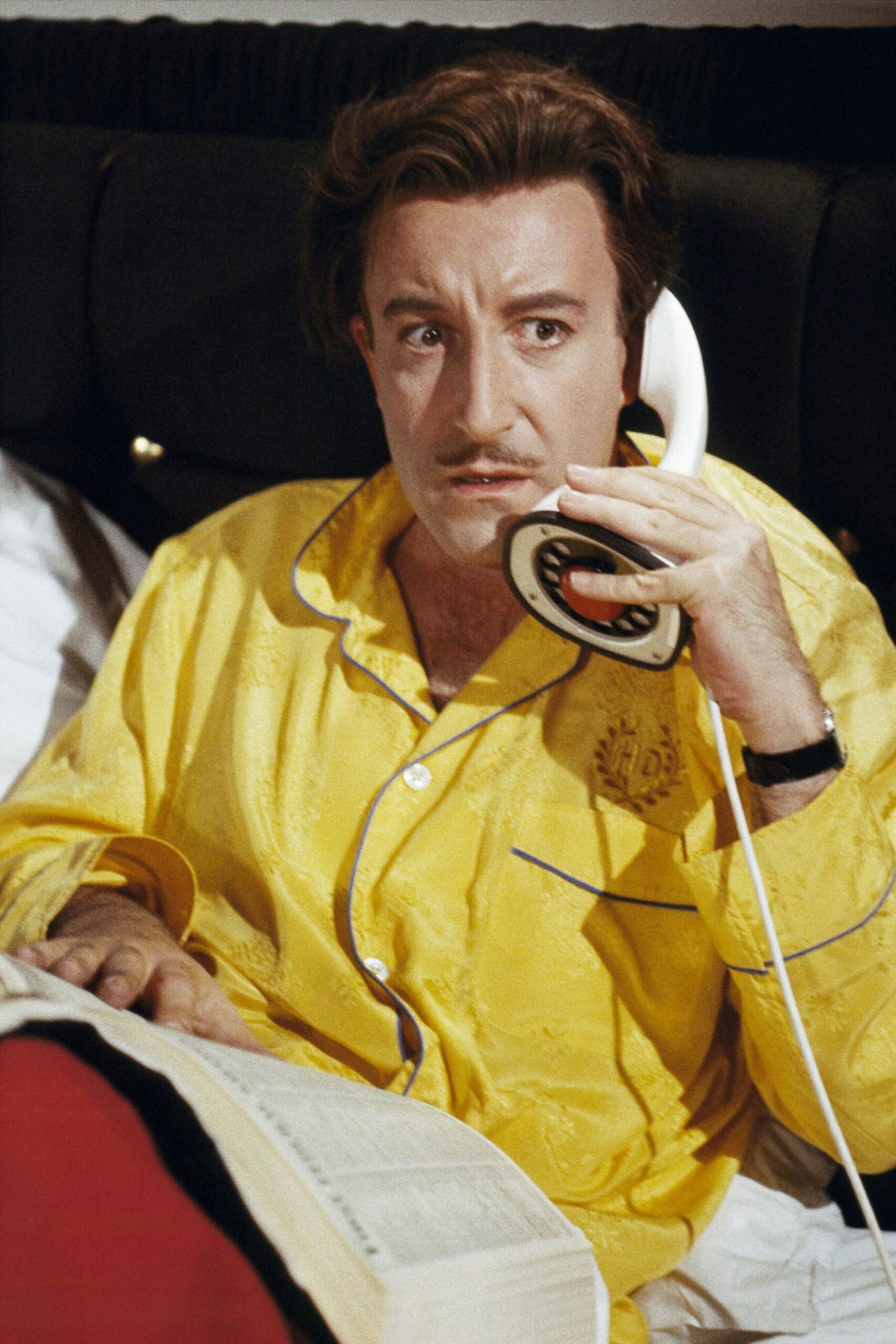


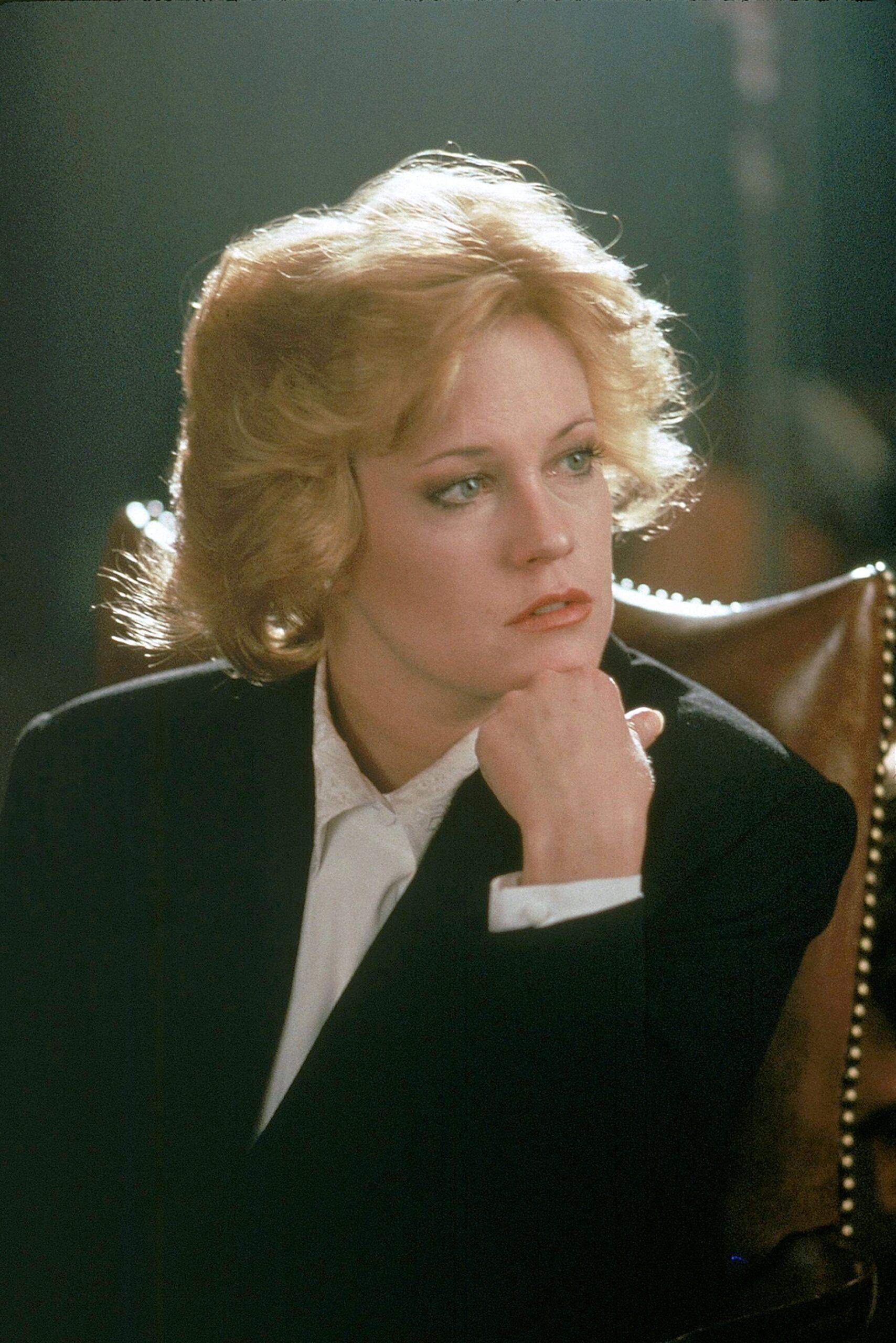
Since then, Ms. Roth has created innumerable iconic looks for Broadway and Hollywood: Dustin Hoffman’s purple suit and Jon Voight’s fringed suede jacket in “Midnight Cowboy”; Jane Fonda’s sequined cocktail dress and boa as a call girl in “Klute”; Barbra Streisand’s nightie with the satin-appliqué hands cupping her breasts and “heart on her pee-pee,” as Ms. Roth put it, in “The Owl and the Pussycat.” She’s the person who put Natalie Portman in a $19 pink wig for “Closer.”
Then there’s the Jesus character in “The Book of Mormon,” who had lights attached to his cape to give him a sacred glow. “I wanted Cheryl Tiegs in the ’80s,” Ms. Roth said of the look, harking back to the beatific, blond pictures of Jesus I grew up with.
As costume designer for the notorious film flop “The Bonfire of the Vanities,” Ms. Roth “resembled an elegant pheasant on amphetamines,” Julie Salamon wrote in her rollicking 1991 book, “The Devil’s Candy.”
The pheasant and I sat down to a delicious lunch of salmon, corn salad, homemade vanilla ice cream and red wine. Then we repaired to her cozy studio, rain pattering on the skylights, to look at all her sketches, photos and voluminous research books. The room is dominated by a large, beautiful Brigitte Lacombe photo of Ms. Streep, a smaller one of a smiling Mr. Nichols (“I really, really miss Mike”) and a photo of Ms. Streisand wearing that racy negligee.
“What do you think it took to get little Barb into that?” Ms. Roth said drolly about La Streisand. “I don’t think she thought it was hip or would make the pages of Vogue. It’s hard to get actors to go for trash. Trash is one of my favorite things to do.”
In the middle of the room, there’s a chaise with a leopard-print throw, perfect for getting inspiration as she plays Mozart, Beethoven, Strauss, Offenbach, Elvis and Fats Domino. In a corner is a MacBook still in the box.
“I’ve never opened it,” she said. “I don’t have a website. I’ve never seen Instagram or TikTok.” She adds, “I’m way oldie-timey.”
Her friends would laugh at that description of a woman with boundless energy who shows up at parties with her karaoke machine. “She’s younger than any young artist I know,” said her close friend Scott Rudin. “She’s been on top of her game for 65 years.”
Ms. Roth is going through 2,000 drawings of her costumes, which she plans to donate to Carnegie Mellon when she dies. She showed me some of the famous ones, complete with swatches of material attached. “Usually, they have a wine glass circle on them,” she said, “because I’m talking with the tailor late at night.”
(Most of the time, she calls me “darling girl,” but if I ask a question she deems stupid, she calls me “birdbrain.”)
Ms. Roth’s warehouse a few miles away has enough clothes to outfit a city, chockablock with pieces from every decade — waist cinchers and fedoras and century-old football shoulder pads, and categories like “Nazis,” “Israeli police,” “Mambo kings” and “Jesus Christ, multiples.”
The designer had a symbiotic relationship with Mr. Nichols for nearly 50 years. She did six plays with him, starting with Neil Simon’s “The Odd Couple” in 1965, and 13 films, including “Silkwood,” “Heartburn,” “The Birdcage” and “Working Girl.”
The director usually took Ms. Roth’s advice — except on one thing. “He had a terrible problem with printed fabrics,” she said. “Mike would say, ‘You can’t have plaid. Ever.’”
“‘Let’s just try it. If you hate it, I’ll pay for it,’” Ms. Roth recalled saying to him. “That always gets them.”
Mr. Spielberg was more docile. He said that when he first met Ms. Roth, she did a presentation on how she would dress Ms. Streep and Tom Hanks as Katharine Graham and Ben Bradlee for “The Post,” and he was smart enough to keep his mouth shut. “I said, ‘Yes, boss,’” he recalled.
Attention to Detail
When Ms. Roth won the Academy Award for best costume design in 2021 for “Ma Rainey’s Black Bottom,” she was hailed as the oldest woman to ever win a competitive Oscar. It followed her win for “The English Patient” in 1997 — remember the amazing red plaid shawl Kristin Scott Thomas wore to keep warm in the desert nights? — and a Tony in 2013 for “The Nance.”
For “Ma Rainey,” Ms. Roth said, “I made the behind.” She endowed Viola Davis with greater curves — rubber boobs underneath her boobs, as Ms. Roth put it, and a rubber bottom to match the measurements of Aretha Franklin, at Ms. Davis’s request.
The actors wore authentically heavy wool suits in a steamy Chicago summer “because it needed to hang correctly,” said the film’s director, George Wolfe. Ms. Roth said she imports 21-ounce wool from West Yorkshire, England, for period pieces, noting that “wool has to be what it is supposed to be.”
“Things either enhance or distract,” Mr. Wolfe said. “Actors feel and sense and are affected by everything. They’re affected by what their undergarment is, what the wig is. It’s all contributing to the storytelling or it’s distracting from the storytelling. That’s what’s so thrilling to work with Ann, because she brings the ferocity of that belief in every single detail of her work.”
Unlike costume designers in Hollywood’s heyday, Ms. Roth is not devoted to making the top movie stars look impossibly glamorous. She talked Nicole Kidman into wearing a big latex nose to play Virginia Woolf in “The Hours” in 2002. “I said to her, ‘I can’t honestly put a 1917 hat on your head with that nose,’” she recalled. “I made her a nose with a nose maker in England, and it took hours every morning for them to get the damn thing on.”
Mr. Rudin, the film’s producer, backed up Ms. Roth, but Harvey Weinstein, who was financing the movie, was furious. “‘I paid a million dollars for that girl, and no one knows who she is,’” Ms. Roth recalled Mr. Weinstein snapping. Mr. Rudin said that Mr. Weinstein sent an executive to London to talk Ms. Kidman out of the nose, but Mr. Rudin stationed security guards at every entrance of the set so that Mr. Weinstein’s man could not get to the actress. Ms. Kidman won an Oscar for her transformation.
“I don’t think anybody really liked him,” Ms. Roth murmured about Mr. Weinstein.
Ms. Roth conceived Melanie Griffith’s metamorphosis from Staten Island secretary to Wall Street wiz in “Working Girl.” (“You can’t talk about the movie without talking about cocaine,” she told Mark Harris for his biography on Mr. Nichols.)
On “The Bonfire of the Vanities,” which also starred Ms. Griffith, the director, Mr. De Palma, had conferences with actresses on his lap, and the crew openly rated the actress’s “heinies” and legs and complained if they were a few pounds overweight, according to Ms. Salamon’s book.
“I’ve never seen so many prosthetic breasts in my life,” Ms. Roth told Ms. Salamon, after days of fitting extras for the movie.
Asked about the quote, Ms. Roth smiled sweetly. “A girl has to be careful what she says, doesn’t she?” she replied.
The costume designer is famously blunt. She hates whiners and loves a challenge.
“She tells you the truth, tells you when you’ve made a mistake, straight up, no B.S., and you trust her because of it,” said Amy Pascal, the producer who worked with Ms. Roth on “The Post.”
Ms. Roth performs her alchemy at the moment when actors feel most vulnerable: costume fittings when they’re in their underwear, looking in the mirror and just beginning to search for their characters. She is like a psychoanalyst, managing their insecurities to help them subsume themselves in a character.
She said her technique is to gather all kinds of stuff and stick it in the closet of the fitting room. “Then I say to them, ‘You and I are going to find this character,’” she said. “But I, in all honesty, am not going to consult. It’s too late to consult because I’ve already got it behind the curtains in the closet.
“Someone said to me, ‘I don’t wear yellow,’” she recalled. “I said, ‘Shut up.’” Eventually, the actors’ characters stare back at them in the mirror.
Sometimes Ms. Roth changes lives. She advised one uptight movie star to smoke marijuana to relax, and warned Mr. Shyamalan, when they worked on “Signs” and “The Village,” not to let money and success corrupt him.
“She was playing through life like a child and that’s contagious,” Mr. Shyamalan said.
A ‘Novelist Designer’
Ms. Roth’s curiosity about everyone, whether she meets them at a gas station or a gala, is her most distinctive trait.
Ms. Streep calls her “a novelist designer.”
“In her work in film and theater, she is a sort of writer,” Ms. Streep said of her friend. “Her designs are not so much costumes as an extension of the individual character she is building with an actor and director. You don’t come away from her work saying, ‘Oh, weren’t the costumes gorgeous?’ You just remember the people she has clarified for you through what they chose to put on their bodies in the morning. She has a sharp flair for the eccentric in the ordinary. Authenticity and specificity.”
Ms. Roth scorns the slipshod. She searched for just the right shade of blue for Bette Midler’s caftan in her 2013 one-woman play “I’ll Eat You Last: A Chat With Sue Mengers.”
Ms. Midler said: “Usually these days you get ‘It sort of fits.’ ‘It’s fine, the camera won’t see your feet.’”
“I hate the expression ‘I see you,’” the actress said. “But Ann sees you and sees the character on top of you.”
Ms. Roth has been known to go to extremes to get the look she wants. While shooting the 2012 action movie “Safe,” she asked a Polish construction worker in Philadelphia for his pants to put on Jason Statham, according to “The Designs of Ann Roth,” by Holly Poe Durbin and Bonnie Kruger.
“They were old and sexy,” Ms. Roth told me. (She bought the pantsed man another pair.)
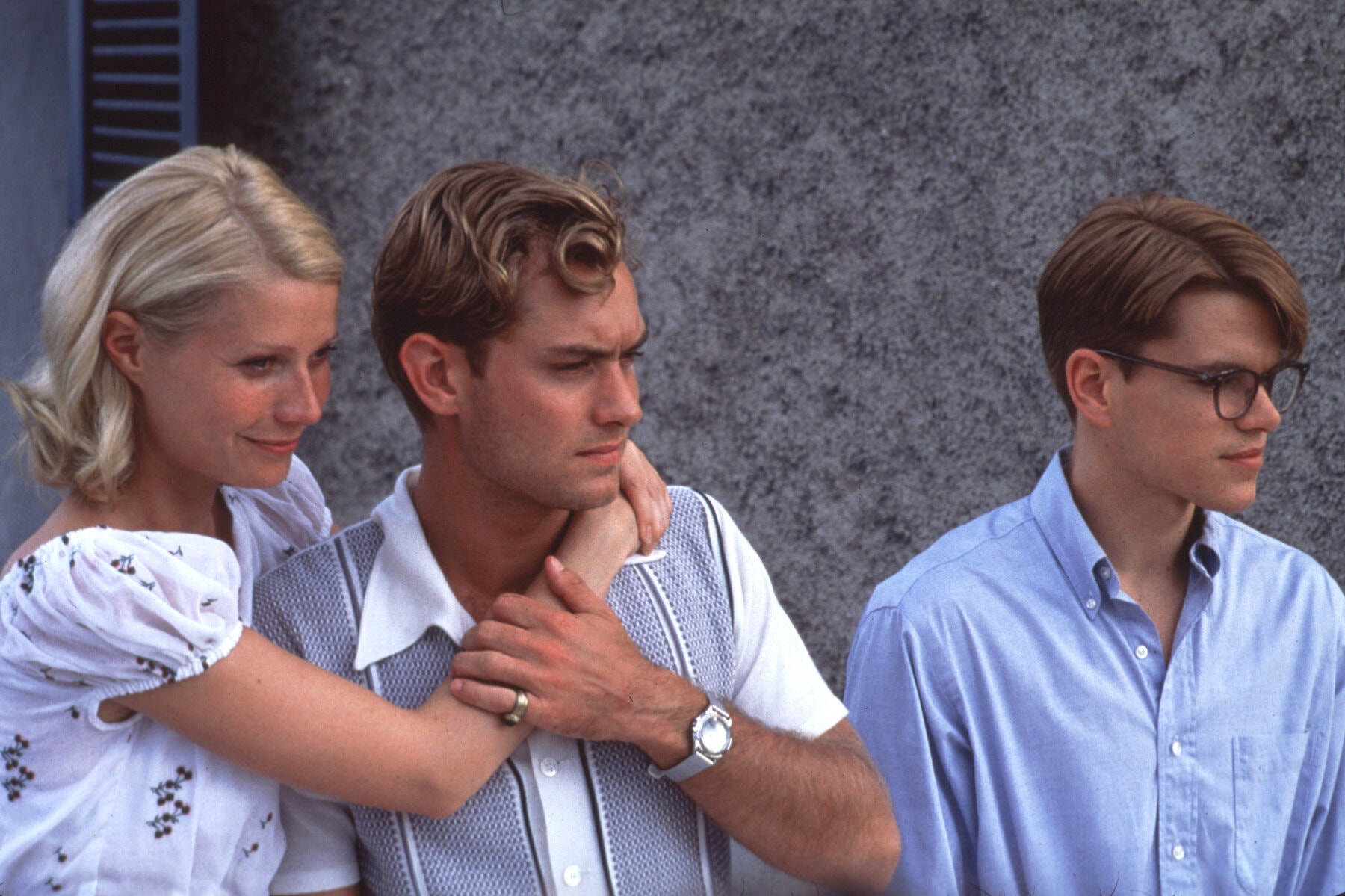
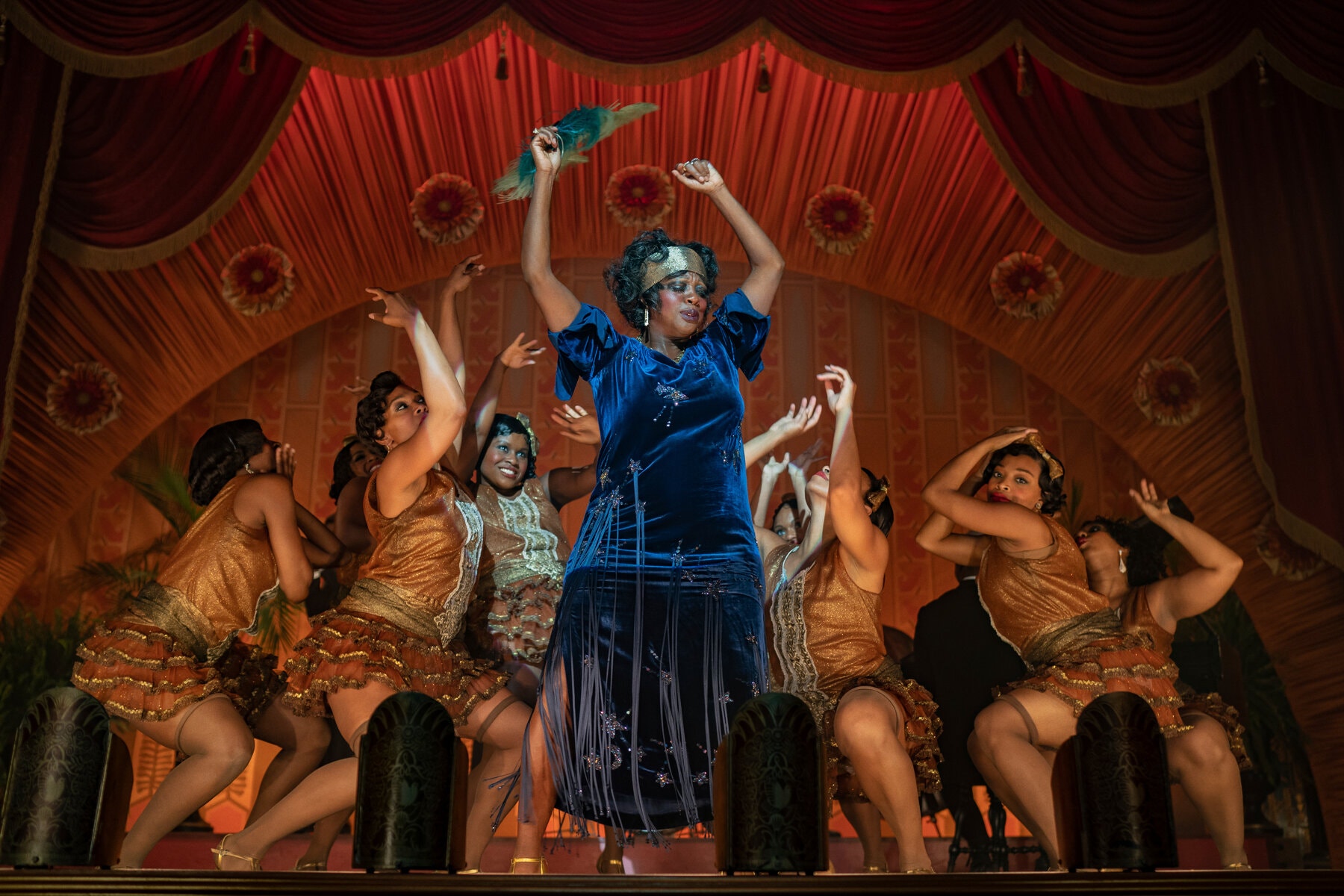
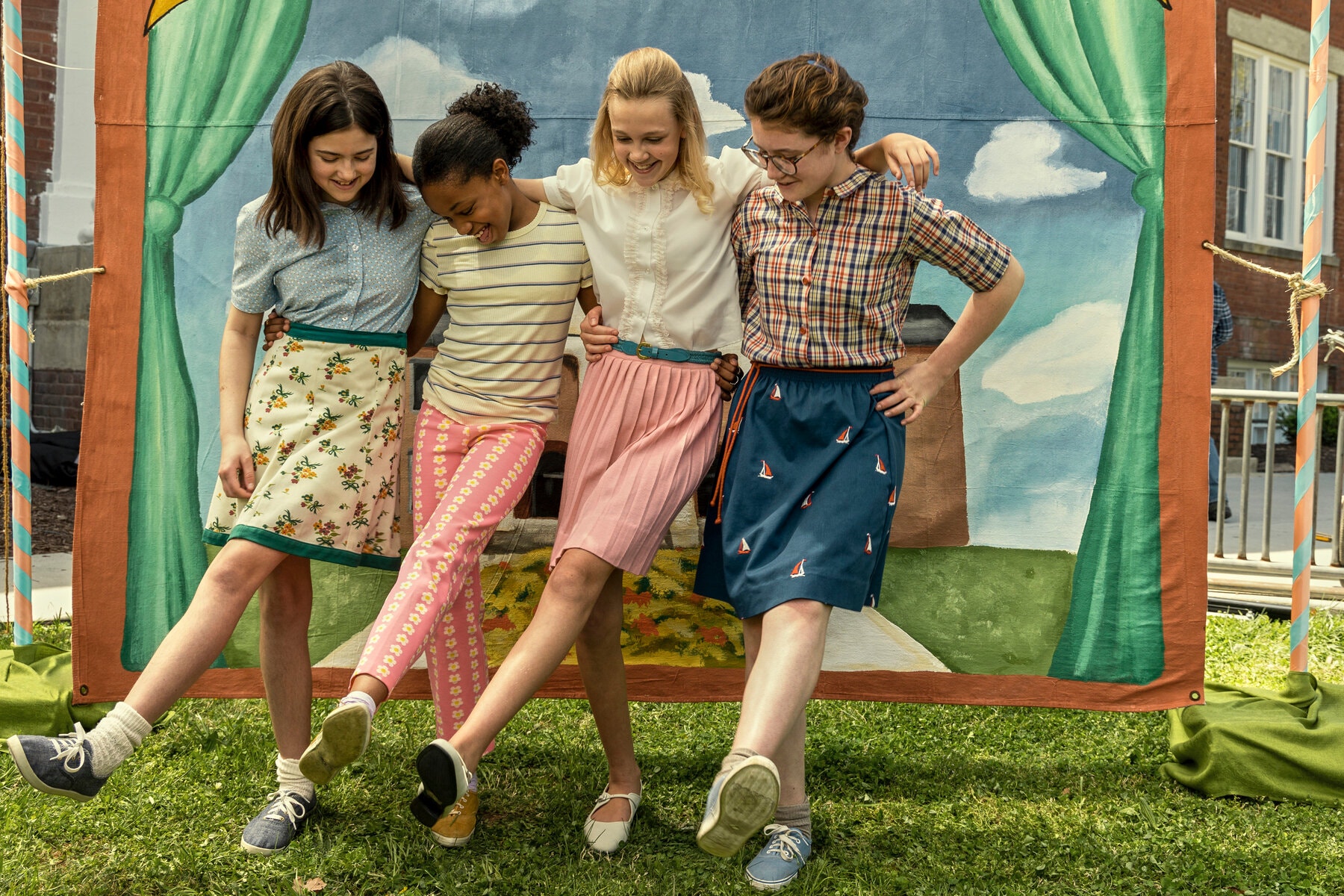
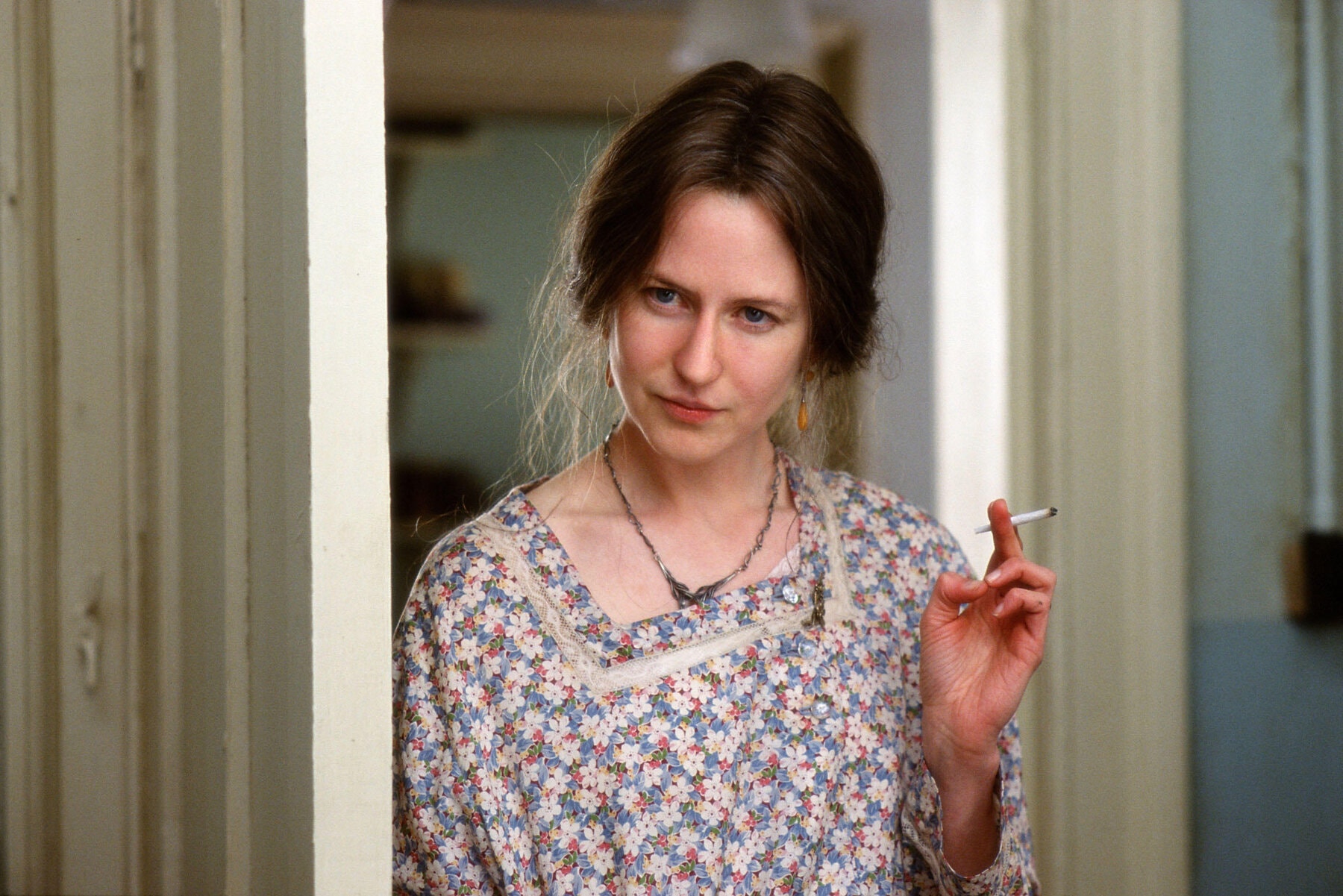
She is particularly proud of buying a red fox fur coat from a parking attendant at 25th and 10th in Manhattan that Brenda Vaccaro, nervous about being naked, ended up wearing during her sex scene with Mr. Voight in “Midnight Cowboy.” The designer kept it to wear herself afterward.
During the costume fitting for “Mamma Mia!” Ms. Roth told Christine Baranski about Tanya, her jet-setting character: Her lifestyle was “Dolce & Gabbana Vita,” and she vacationed in Sardinia, Italy, and Ibiza, Spain.
“Ann said Tanya was always pursuing the next fabulous thing and the next fabulous guy, but there was a bit of desperation there,” Ms. Baranski recalled.
Ms. Roth worked with a nervous Nathan Lane on Noël Coward’s “Present Laughter” on Broadway in 1982. In the play, he’s an aspiring playwright whose father wants him to be a lawyer. Ms. Roth put a vintage brown suit on him while explaining, “This suit was probably owned by your father, who’s a lawyer. He wanted you to become a lawyer and the suit was cut down for you.” (Mr. Lane called her “the Meryl Streep of costume designers.”)
James Brooks, who produced “Are You There God? It’s Me, Margaret,” released earlier this year, was dumbfounded when he heard Ms. Roth, who was overseeing costumes, hair and makeup, talk to the actors as she fitted them. He began sitting with her.
“It would be pleasure seeking to just sit and listen to it,” he said. “It was like every second, 100 times a day, she was saying something smart in that low, thrilling voice.”
He has already enlisted her to work on his new movie being shot in Rhode Island, “Ella McKay,” starring Emma Mackey, who is in “Barbie.”
Historically Accurate Underwear
Ms. Roth upended the Hollywood system, informing the suits about dressing the bit players, “I will be doing the elevator man,” she said.
In “Cold Mountain,” she did not just dress Ms. Kidman and Renée Zellweger; she outfitted the entire Union and Confederate armies for the scene depicting the Battle of the Crater. She took someone with her to the set to age and dye the fabrics correctly; she can give a whole dissertation on the iron as an instrument to ingrain dirt around a collar.
We looked at the fabric swatch from the movie. In The Times, Kate Betts described the labyrinthine process of replicating the fabric of the North Carolina 25th Infantry, called butternut because it was dyed with the bark of a butternut tree. “So she tracked down someone named Pat Cline in Pennsylvania, who knew exactly how to dye the thread to look authentic,” Ms. Betts wrote. “Ms. Roth had the fabric woven and printed in Montana, dyed and aged in Rome and shipped to Romania, where the filming took place.”
Ms. Roth did the costumes for the smash Scott Rudin production of Harper Lee’s “To Kill a Mockingbird,” refashioned by Aaron Sorkin. She visited London last year to check on the costumes for the West End run.
After lining up the cast in the lobby of the theater, because the backstage stairs were too daunting, Ms. Roth asked the actors if anyone had some coins she could borrow. She dumped a load of coins into the suit pocket of one of the actors and said, “That’s how a jacket that’s been worn for years sags and sits and looks, and that’s how I’d like all these coats and pants and jackets to hang, with the weight of time and wear.”
She also insists on historically accurate underwear. For “Places in the Heart,” a Depression-era story, she gave Sally Field a girdle without a crotch for Edna Spalding’s going-into-town-to-ask-for-a-loan-at-the-bank look. When Ms. Field gave her a look, she told the actress, “Put it on.” With the proper underwear, she explained, you walk and sit a certain way. The actress won an Oscar.
Most of the time, actors are grateful to soak up Ms. Roth’s ideas. “Ann will hand me a purse to go with a particular costume and going through its contents will inevitably reveal things to me about my character,” Ms. Fonda said. “Maybe there’s a Swiss Army knife in the purse. Maybe a cigarette holder and lighter or a small notebook for journaling and a very specific kind of pen.”
Speaking about her character in “9 to 5,” Ms. Fonda recalled, “A purse she gave me for Judy Bernly had food coupons in it.”
Joe Mantello said that for the Honey character in his 2020 production of “Who’s Afraid of Virginia Woolf?” Ms. Roth had a second A-line shift made and put a small vomit stain on it and more wrinkles for the scene after Honey throws up.
“Unless you were in the three front rows and really observant, you would not notice that,” Mr. Mantello said. “But detail and reality are so much a part of her process. And it really helps the actor because they move in a different way when they wear it. That’s what makes Ann Roth Ann Roth.
“She and Mike Nichols were like-minded collaborators because he allowed behavior to reveal psychology and she allows clothes to reveal psychology.”
Sometimes, however, movie stars cling to their image and fight Ms. Roth. Mr. Hoffman, a newly minted movie star after “The Graduate,” at first resisted Ratso Rizzo’s look in “Midnight Cowboy,” a green suit Ms. Roth found on 42nd Street and dyed purple, and a white jacket redolent of Ratso’s pathetic emulation of the Italian actor Marcello Mastroianni. She added Times Square “cockroach-in-the-corner” high-tops.
In “Primary Colors,” John Travolta, playing Jack Stanton (based mostly on Bill Clinton in the 1992 campaign), did not want to wear what Ms. Roth had accurately planned: “Department-store suits available to men in a small city in a not-prominent Southern state.”
“I lost that battle,” Ms. Roth said with a rueful grin, noting that the actor must have gone to Mr. Nichols, the director, and said, “She’s making me wear this ugly suit.” Mr. Nichols told Ms. Roth, “Let him have Donna Karan suits.”
“I will never forgive Mike for that,” she said, laughing.
Mr. Travolta’s rejection of her look did not stop them from hanging out.
“I did go dancing with Travolta once,” she said. “We danced once in a big makeup-hair camper and we said, ‘We have to do this more’ and we did. He’s a very good jitterbug, as am I.”
Before I left, I wondered which movie she considered her best work.
“It was probably Jude Law and Matt Damon in ‘The Talented Mr. Ripley,’” she said. “That was my fashion piece.”
And which was the most fun?
“I have never had fun making a movie in my life except for ‘Mamma Mia!’ where some guy called me and said, ‘How would you like to go to an island with your good friend and make ‘Mamma Mia!’?” She got to hang out with Ms. Streep and Ms. Baranski and drink lots of martinis. “I drink potato-based vodka on ice,” she said. “Not grain.”
After all, as Ms. Roth said slyly, “I’m the world’s oldest costume designer, damn it!”
Confirm or Deny
Maureen Dowd: You have been wearing blue toenail polish every day since 1953.
Ann Roth: Mike Nichols asked me to come to dinner with Anthony Minghella at the fancy Chinese restaurant in Beverly Hills, Mr Chow. Before Minghella arrived, Mike looked at my feet and said, “You’re not going in like this, are you?”
You worked as an assistant for Miles White when he designed the Ringling Bros. and Barnum & Bailey Circus and was the costume designer for “Around the World in 80 Days.” There were 74,685 costumes for that movie.
That was a big mess. I did go to Las Vegas to fit Marlene Dietrich. She wanted to sit on a big beer or wine barrel with her legs apart because Miles had done a divine drawing of her like that. I had to find the barrel. She was fabulous. She taught me about a fabric that was made in Czechoslovakia and found in Switzerland called silk souffle, which really doesn’t exist anymore. It’s just thinner than silk stockings ever dreamt of being. Cameramen sometimes liked to use it on their lenses because it made people look better.
You kept the gray sequined dress Jane Fonda’s call girl wore to parade before a client in “Klute.”
Jane and I passed that dress back and forth for about a year afterward. Jane is like four inches taller than I, and I would have mine pinned up and go to a party and then ship it back to her.
You often use a flesh-toned fabric known as O.M.D., describing the color of an older man’s privates.
O.M.D. is a lavender gray. The Russian ladies who sewed for the costume designers Barbara Karinska and Irene Sharaff called that color thread O.M.D. They spoke no English at all except they all knew what O.M.D. was.
You love to wear snail spit to go out to cocktails.
I would. Snail spit is a novelty fabric, cheap, like nylon with a shine or glitter to it. You can pull a yard through a wedding ring. You can’t pull a yard of velvet through a wedding ring.
You have your own karaoke machine.
I do, but I need it Thursday and I don’t know where it is.

